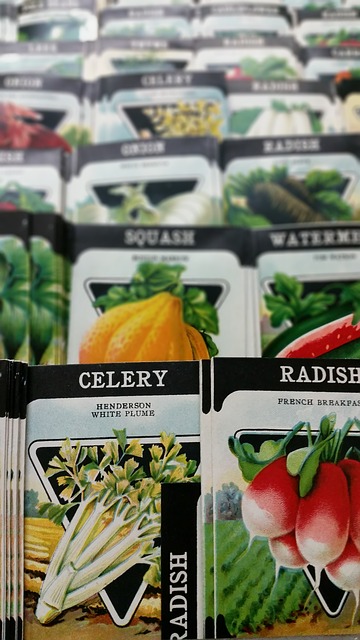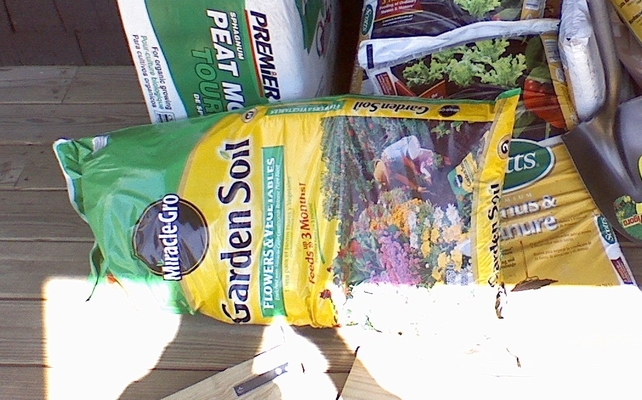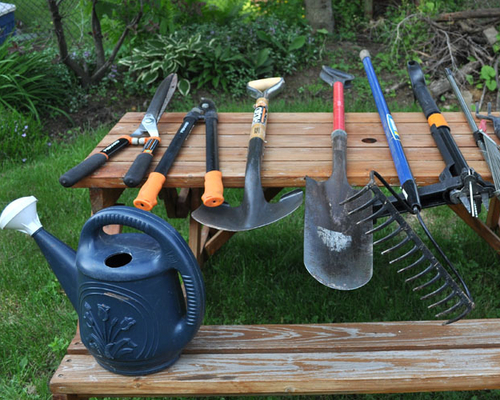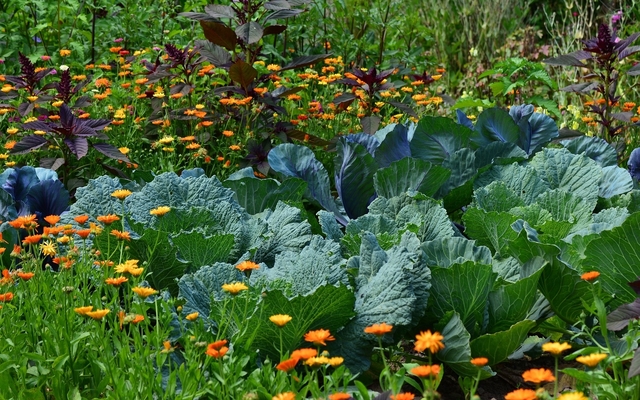Don't Cut Corners in your Veggie Garden!
You Can Be Frugal and Successful!
There are a lot of ways to cut corners in the garden to save money. Buying garden supplies such as containers, watering cans, etc from a second-hand store is one way. Building your own raised garden beds or trellises is another.
But there are five categories of gardening items that you definitely should not skimp on. Here's the list.
Seeds
I've learned this lesson the hard way. Seed trades over the internet seem like a good idea to save money until you find out later that the seeds are old and don't even germinate. Even worse can be the trade seed packets that are mismarked.
You don't want to end up planting what was marked as a “Space Saver Cucumber” in a matching small pot only to find out mid-season that it was really more like an “Intimidator Cucumber" and have to replant it later.
Unfortunately by the time you find out the seed packet was mismarked, it could be too late to get the seeds you wanted and start again that season.
 |
| Click to View |

The top seed companies are popular for a reason. Their seeds are more expensive, but it's well worth the money to get what you wanted and to know that they are fresh. Leave the seed trades for some fun garden experiments and not anything you are counting on.
Soil
Starting out with healthy well-draining soil will give you the best chance at growing healthy plants. If you're reusing container soil from last year, make sure you refresh the soil.
For a detailed article on refreshing last year's potting soil, click here.
For a detailed article on soil amendments, click here.
Yard/Garden Tools
Like any other endeavor, quality tools are important. You can save money by buying tools like rakes or shovels second-hand, but for those tools that actually touch your plants, snippers, lopers, and hand tools, spend the money on the quality ones. If you keep them cleaned and oiled before you store them over the winter, they will last a long time.
 |
| Click to View |

Knowledge
Whether that's a good garden book or joining relevant internet groups, don't skimp on knowledge. Having a good plan before starting the season involves learning what each plant needs in order to grow to harvest.
Pre-Planning
Haste makes waste, and that is true when growing food. Before your gardening season begins, estimate how much time you reasonably can spend in your garden and create a growing schedule that you can manage.
Add some time to do weekly walk-throughs just to examine your plants and take notes. A lot of learning comes from the experience of watching a plant grow through its entire cycle.
This is also a great time to check for harmful animal or insect damage and correct it before it takes hold. Also, add some time to relax and enjoy what you're creating.
Things to concentrate on are:
Timing
This is especially important when growing plants like tomatoes that take longer to come to harvest longer growing season. A late start may cost you a good harvest.
Plant Placement
Sun or shade or a little of both. The right placement can determine the outcome. Make sure each vegetable you plant is in a spot to get the right amount of sun.
Fertilization
Both the amount, the type and when to fertilize. Not all plants have the same needs. For instance, using a high nitrogen fertilizer on plants you grow for their leaves (like lettuce or spinach) is great, but if you use too much nitrogen on root plants, you'll end up with a lot of top leafy growth and not enough root to harvest.
~~~~~~~~~~
If you save where you can and spend wisely, you can achieve a great healthy veggie garden at a minimal cost.
~~~~~~~~~~
Where to go next!
This post may contain some Amazon Associate links meaning that I will get a small compensation at no expense to you if you purchase something from this blog.








.png)






No comments:
Post a Comment
Note: Only a member of this blog may post a comment.